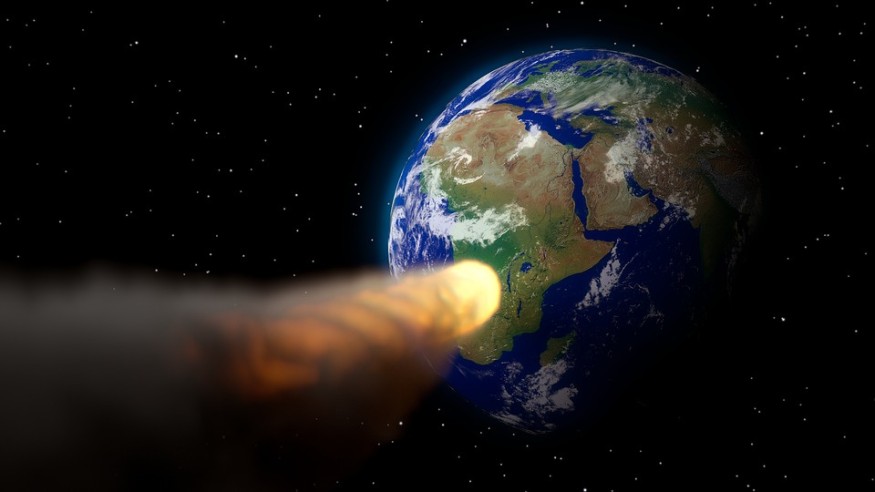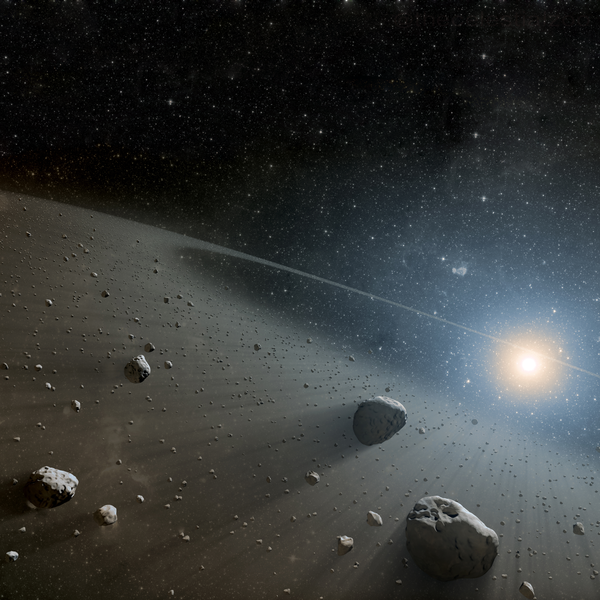Megaconstellations might potentially obstruct planetary defense, according to asteroid hunters. A recent poll reveals the worries of planetary security specialists.

Apollo Academic Surveys has published the survey findings.
Planetary Defense
Asteroids and comets that circle the Sun similarly to planets are known as near-Earth objects (NEOs), and their trajectories may sometimes put them within 30 million miles of Earth's orbit. To counter the risk of a NEO impact, planetary defense uses "applied planetary science."
NASA established the Planetary Defense Coordination Office (PDCO) to oversee its ongoing planetary defense effort. The PDCO:
Gives early warning of potentially dangerous objects (PHOs), a subgroup of NEOs whose trajectories indicate they will pass within 5 million miles of Earth's orbit and be large enough to cause harm to the planet's surface (30 to 50 meters in diameter);
Keeps track of PHOs, describes them, and gives alerts about potential repercussions;
studies mitigation techniques and technology for PHO effects; and
Plays an essential coordination function in the U.S. government's reaction strategy to an actual impact threat.
Starting to Worry

The expanding number of satellites in low Earth orbit (LEO) has generally alarmed the astronomical community. It has also alarmed several planetary defense scientists and experts, who have expressed their concerns on the subject.
Experts in planetary defense were polled by Apollo Academic Surveys and Carrie Nugent of the Olin College of Engineering in Massachusetts on various issues relating to comets and near-Earth asteroids (NEA). All 34 experts surveyed stated they were somewhat concerned about how satellite overload would affect asteroid detection, and 24% said they were highly concerned.
One unidentified survey respondent stated, "Studies (e.g., Mroz et al. 2022) have demonstrated that LEO satellites can negatively impact observations done during twilight, which is an essential parameter space for NEO hunting.
Another commenter raised the possible problem of launching a mitigation mission through a "flood of artificial satellites," such as an asteroid deflector mission like NASA's DART project.
The fact that there isn't anything substantial being done to address this problem, Cristina Thomas of Northern Arizona University remarked, "I believe it's just dreadful." "This will only become worse and cause a lot of issues for ground-based finding," the speaker said.
But there is still hope. Some experts said that the future of monitoring such hazards lies in space-based observation devices, such as the NASA space telescope NEO Surveyor that the agency wants to deploy in 2028. Another anonymous survey respondent said, "Ground-based search assets are of declining relevance. Space-based assets represent the proper advancement of NEO detection."
In addition, as astronomical observers have tried to accomplish, researchers may be able to create software to filter out the majority of interference from artificial satellites for ground-based observations.
Observing the Megaconstellations
Eric Christensen of the University of Arizona, who is the principal investigator of the Catalina Sky Survey, one of the two asteroid-spotting programs with the most detections to its name, wrote: "A well-designed, NEO-focused survey can be made robust against losing occasional images (or fractions of images) due to satellite trails."
He calculated that a few tenths of a percent might reduce the Catalina Sky Survey's detection effectiveness by a fully developed Starlink megaconstellation.
However, he points out that some astrophysics surveys "may be more sensitive to added 'noise' from satellite tracks.
For more Space news, don't forget to follow Nature World News!
© 2026 NatureWorldNews.com All rights reserved. Do not reproduce without permission.





